Search Results
Showing results 61 to 80 of 534

The Space Place
Source Institutions
In this activity (23rd on the page), learners conduct an experiment to examine memory and learning.

Carbon Sequestration
Source Institutions
In this inquiry-based lesson, learners measure the biomass of trees, calculate the carbon stored by the trees, and use this information to create recommendations about using trees for carbon sequestra
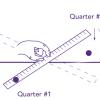
Free Fall
Source Institutions
In this quick activity (page 1 of PDF under SciGirls Activity: Hockey), learners will use a simple physics of motion and gravity demonstration to test their predicting skills.

Gummy Shapes
Source Institutions
In this activity, learners use chemistry to “self-assemble” gummy shapes. Learners discover that self-assembly is a process by which molecules and cells form themselves into functional structures.
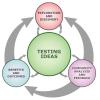
Exploring Liquids
Source Institutions
Young learners investigate and observe the properties of three liquids -- water, vegetable oil, and corn syrup. They use their senses to collect data and ask and answer questions.

Screaming Balloon
Source Institutions
In this quick activity (page 1 of the PDF under SciGirls Activity: Extreme Sounds) about sound vibrations, learners will investigate which small objects, such as coins, hex nuts, or marbles, produce t
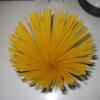
Spaghetti Bridge
Source Institutions
In this engineering activity, learners investigate the differences between the strength of bridges made from flat and round building materials.

Vibrant Cords
Source Institutions
In this activity, learners will explore how the voice works and feel the vibrations produced by vocal cords.
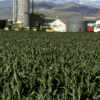
Composting
Source Institutions
In this environmental science activity, learners research what is essential for plant life and the necessary components of soil to support plants.
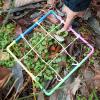
Counting With Quadrants
Source Institutions
Millions of organisms can live in and around a body of water.

Why Doesn’t the Ocean Freeze?
Source Institutions
In this activity, learners explore how salt water freezes in comparison to fresh water.
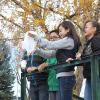
Egg-cellent Landing
Learners recreate the classic egg-drop experiment with an analogy to the Mars rover landing. The concept of terminal velocity will be introduced, and learners perform several velocity calculations.

Illuminations on Rates of Reactions
Source Institutions
In this activity, learners investigate the speed of chemical reactions with light sticks. Learners discover that reactions can be sped up or slowed down due to temperature changes.
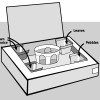
There’s No Place Like Home!
Source Institutions
In this activity, learners make their own bug boxes and test the habitat preference of selected "minibeasts" (bugs).
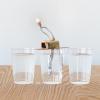
Conductivity Meter
Source Institutions
In this activity, learners build a simple qualitative conductivity tester with a battery, bulb and foil.

Super Bounce
Source Institutions
In this activity (on page 1 of the PDF under SciGirls Activity: Soccer Ball Kick), learners will investigate the transfer of energy using sports equipment.
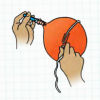
Breathing Room
Source Institutions
In this health activity, learners explore breathing, lungs and asthma. Learners test their lung capacity by blowing air into balloons.
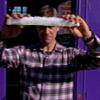
Jem's Pykrete Challenge
Source Institutions
In this activity, learners make pykrete by freezing a mixture of water and a material like cotton wool, grass, hair, shredded paper, wood chips, or sawdust.

It's a Gas, Man
Source Institutions
In this activity, learners discover if carbon dioxide has an effect on temperature.
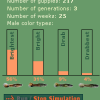
Flashy Fish
Source Institutions
Professor John Endler traveled to Trinidad in the 1970s to study wild guppies. In this activity, learners take part in an online simulation of Endler's work.
